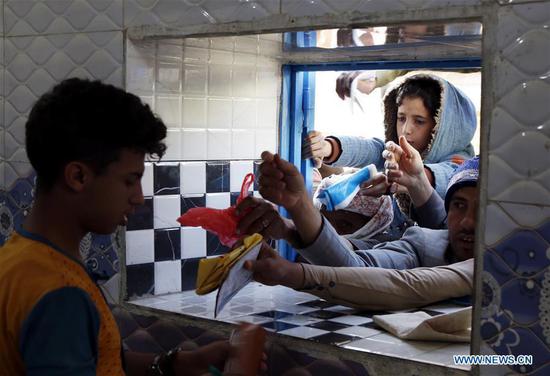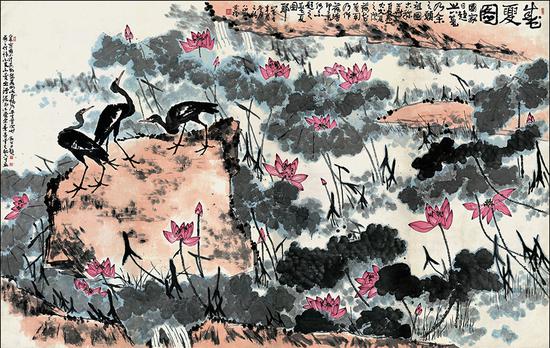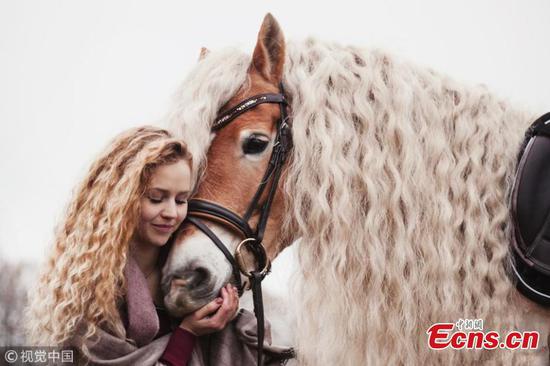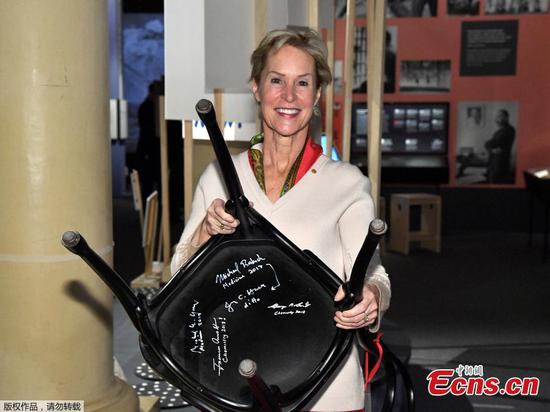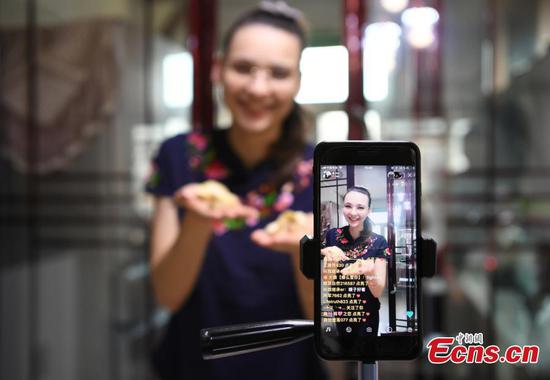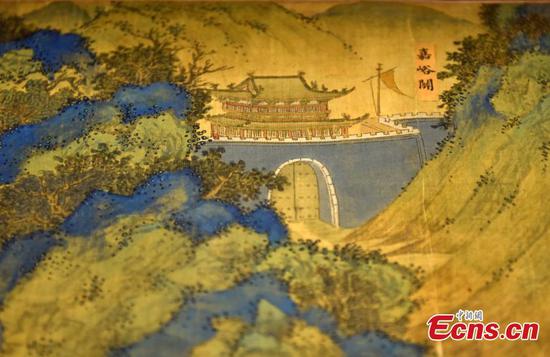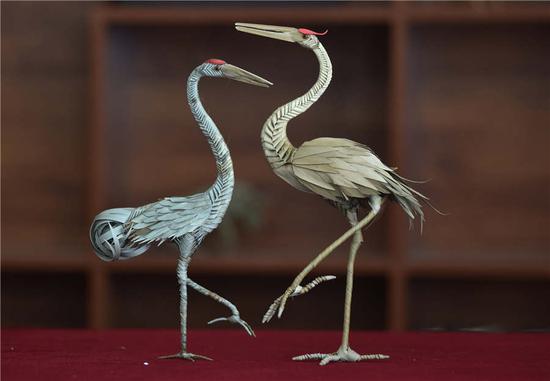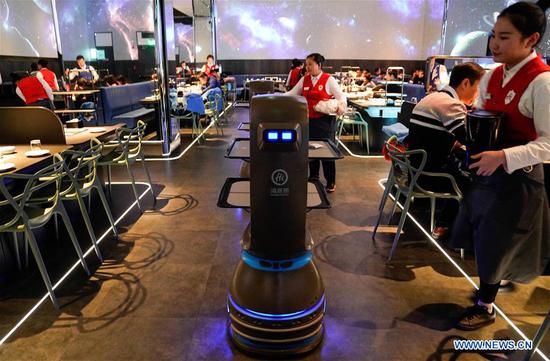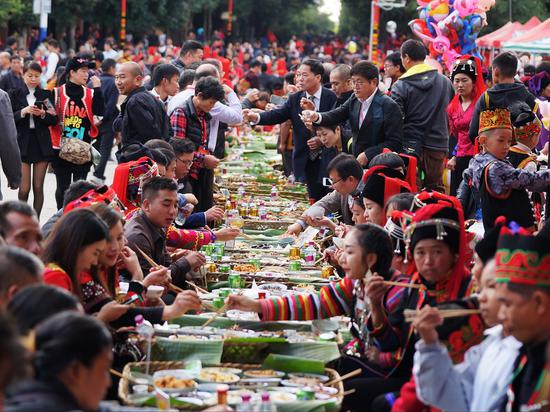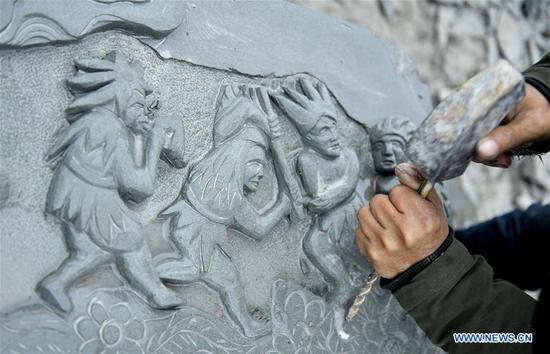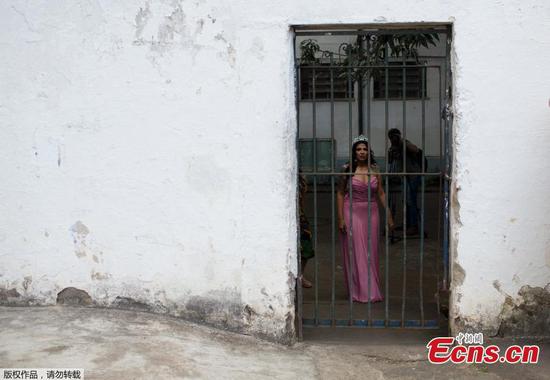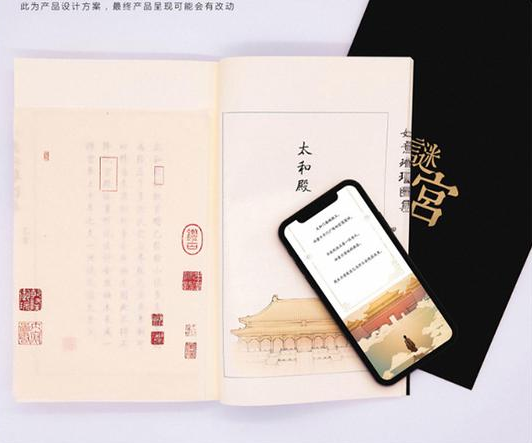
Migong: Ruyi Linlang Tuji offers an interactive experience through reading and online gaming. (Photo/Palace Museum)
China's puzzle lovers will have a chance to rediscover the Forbidden City, as the Palace Museum will present its first-ever interactive puzzle book in January 2019.
The puzzle book, jointly developed by the Palace Museum Publishing House and Omescape, a leading Chinese puzzle game design company, aims to immerse readers in traditional Chinese culture and knowledge of the Forbidden City.
The book is thread-bound, with traditional accessories such as a brush pen, Chinese stationery, traditional paper art, a copper coin and a map dating back to the reign of Emperor Qianlong in 18th century.
Readers will need to download a mobile phone app, through which they can explore close to 30 puzzles in the book.
Money for the book was raised through crowdfunding. From Oct. 24 to Nov. 30, the funding reached 20.2 million yuan, breaking a record in China's publishing industry.
Although the story itself is fictional, its 12 alternate endings were written based on 63 books and over 200 academic essays of history and culture from the Qing Dynasty (1644-1911). Each detail was strictly based on facts in order to let the readers learn more about arts, culture and history.
Wang Zhiwei, an editor with the Palace Museum Publishing House and designer of the puzzle book, said a hidden plot will lead readers to visit the Forbidden City.
"This is designed to enhance the experience of our readers. We also hope the book may instill in readers who have never visited the Forbidden City an interest to learn more about Chinese history and culture," said Wang.
Wang noted there were many exchanges between China and the occidental world during the 18th century, covering fields such as arts, science and technology. Such exchanges are also reflected in this puzzle book.
In 1766, the storyline writes, a painter serving Emperor Qianlong passed away and left behind a manuscript book, titled Ruyi Linlang Tuji. Because of its mysterious accounts, it was once deemed useless. Soon, rumors inside the Forbidden City said the book hid whereabouts of a precious treasure.
Five years later, Zhou Ben, another imperial painter, found the book at a studio by chance and decided to locate the treasure. Readers would need to solve the puzzles from Zhou's perspective. Among the 12 endings, only in one of them can readers find the Linlang treasure.
According to Wang, the publisher has prepared rewards for those who are able to find the treasure. "We cannot reveal what the rewards are, but it would be something that the readers will appreciate and value."
The charm of traditional Chinese culture and popularity of the puzzle book in its crowdfunding round have greatly encouraged the developer.
"We plan to design more games based on traditional Chinese culture. Currently, we are talking about new cooperation projects with the Palace Museum," said Chen Zhen, co-founder of Omescape.
"Innovation has no boundary," Wang said. "The publishing industry is still very much alive and paper books will not die. The combination of books and new media is a trend and one I believe will be the future."










